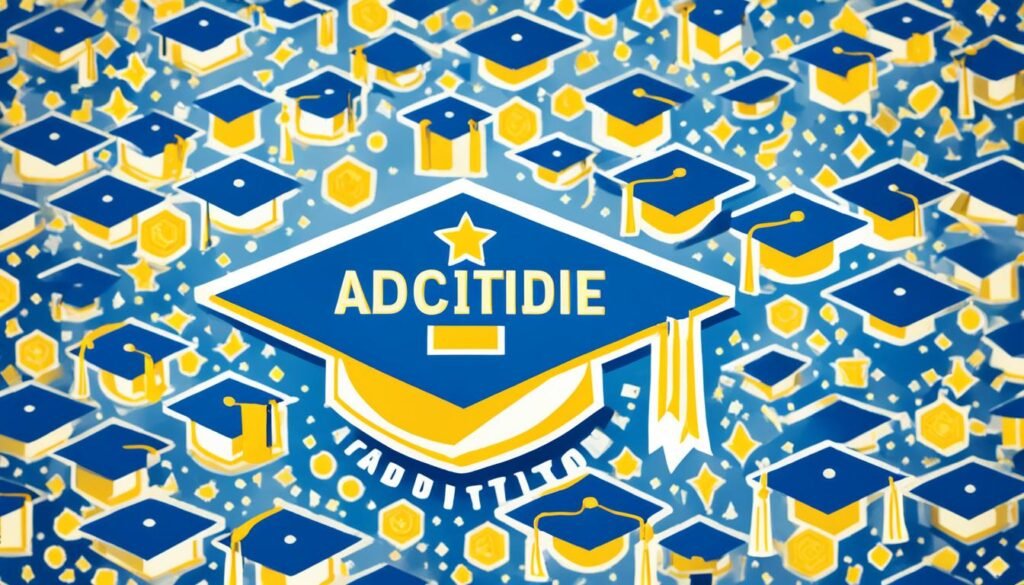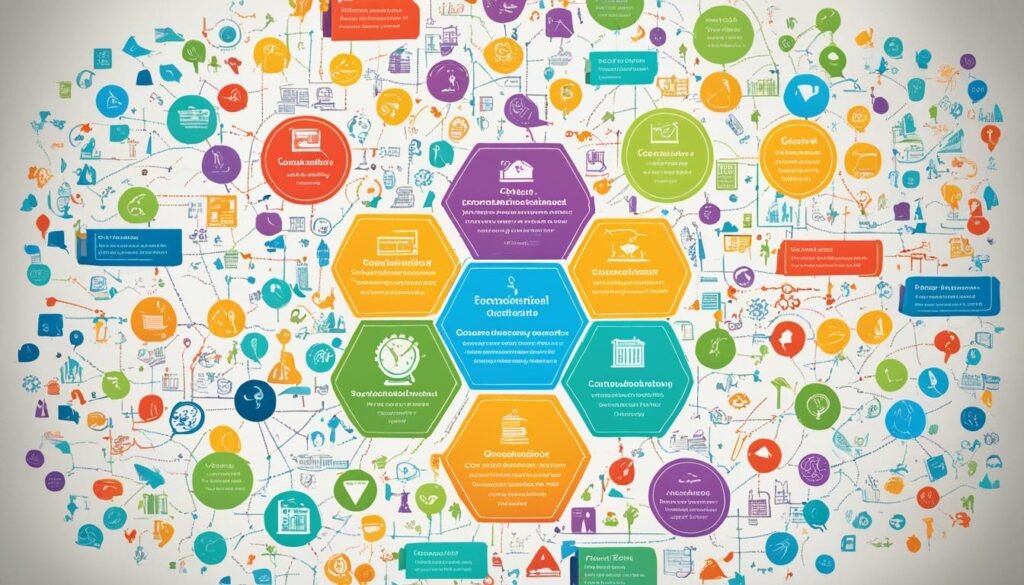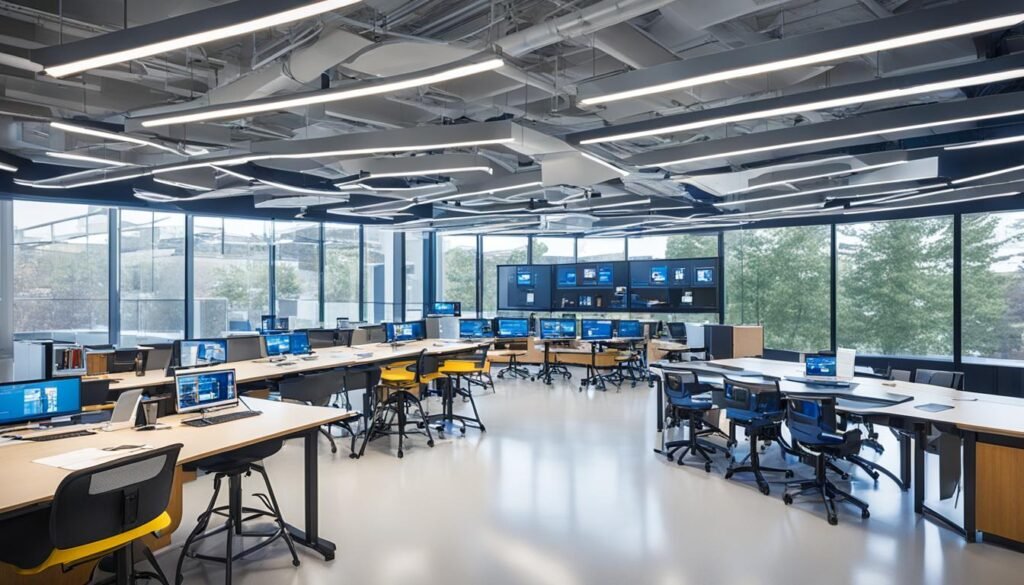Best Education Degree Figuring out the right education degree program may seem hard, but it’s easier when you know where to look. Depending on if you’re into elementary education, special education, or early childhood education, there’s a fit for you. You might be interested in online education or want to go the traditional undergraduate or graduate route. There are loads of options out there.
Finding the top education degree program is key for your future as an educator. You should think about the skills you need, like classroom management and social science know-how. It’s also good to choose programs that give you a chance to learn by doing with hands-on experience and face-to-face study.
Also Read: The Ultimate Degree: Navigating The Path To The Highest Level Of Education
Key Takeaways
- Determine your specific teaching goals, including the age group and subject area you want to focus on.
- Ensure the education degree program is accredited and recognized by educational authorities.
- Research the program’s reputation, success rate of graduates, and the institution’s standing in the education community.
- Evaluate the curriculum, including foundational courses, specialization options, practical experience, and the integration of technology and diversity.
- Consider the school’s resources, such as facilities, technological infrastructure, and student support services.
Also Read: Education Programs At The American College Of Education
Determine Your Teaching Goals
Before choosing an education degree, decide what you want to achieve in teaching. If you aim to be an educator, ask yourself some important questions. They can direct you to the best way forward:
Also Read: Specialized Teaching Strategies: The Benefits Of A Masters In Special Education
What Age Group Do You Want to Teach?
Are you more interested in elementary education, secondary education, or early childhood education? Your choice of age group is a big deal. It affects what you’ll teach and the areas you can specialize in.
Also Read: Advancing Inclusive Education: The Value Of A Master In Special Education
What Subject Area Interests You the Most?
If social studies, social science, or maybe math or English catches your eye, follow that interest. Knowing what subject you love will help find the right education degree and specialization for you.
Also Read: Innovative Approaches In Nursing Education: Preparing The Next Generation Of Nurses
Do You Want to Work in a Traditional Classroom or Explore Alternative Educational Settings?
While some teach in regular schools, others might like somewhere different. This could be charter schools, private schools, or schools abroad. Think about where you’d like to teach when picking an education degree.
Are You Interested in Pursuing Research or Administration in the Field of Education?
Interested in educational research or leading schools? Some education degree programs focus on these areas. If these sound exciting, look for programs that support your goals.
Thinking over these questions carefully will help you choose the right path. This will lead you to a top education degree. This degree will make you a skilled educator, ready to inspire and help your learners in and out of the classroom.
Ensure Program Accreditation

Choosing an education degree program means looking at accreditation. Accredited programs meet high quality standards. They are recognized by groups like the National Council for Accreditation of Teacher Education (NCATE) and Council for the Accreditation of Educator Preparation (CAEP).
This makes sure you get a solid education. Plus, it helps you qualify for a teaching license in your field.
Picking an accredited program is very important. It shows the program is top-notch and has been carefully checked. The value of your education degree goes up. And you have more job options. Your teaching license will be respected in different schools.
With an accredited education degree program, you know you’re getting a quality education. You’re investing in your future career as a teacher. This choice leads to the knowledge and skills needed to succeed in teaching.
Assess the Program’s Reputation and Rankings

When choosing an education degree program, you should check its reputation and rankings in the education community. An institution’s reputation shows many important things. This includes how well its graduates do and what employers think of its education quality.
Program rankings compare its success with others. This can help you make a smart choice.
Research the Program’s Reputation
To learn about a program’s reputation, read reviews and talk to students – past and present. Find out about the job opportunities it offers and the institution’s reputation in the education community. You can learn a lot about the program’s strengths and weaknesses this way.
Check the Success Rate of Graduates
It’s important to look at how many students find jobs after the program. This shows how well the program prepares its students for their careers. Find out how happy graduates are with their careers to get a full picture.
Evaluate the Institution’s Standing in Education
Doing your homework on the institution’s reputation is key. Look into where it stands compared to other education degree programs. Things like accreditation, the teachers’ skills, research, and general reputation matter a lot.
An institution with a strong reputation usually offers a top-notch education degree. Graduates from these programs often find better job opportunities.
Consider the Program’s Curriculum

The education degree program’s curriculum is key for your future as a teacher. It builds your skills, knowledge, and teaching methods. Be sure the courses match your teaching goals and interests.
Foundational Courses
Key topics like education theory, pedagogy, child development, and learning theories are crucial. They give you a solid foundation for effective teaching.
Specialization Options
Programs often let you focus on areas like elementary education, secondary education, or special education. Knowing your interest area helps you pick a program that offers deep training.
Practical Experience
Getting real-world experience is very important. Internships, practicums, and student teaching help you gain skills and confidence. Look for programs that offer lots of time in real classrooms.
Technology Integration
Teaching with technology is a big plus in today’s world. Make sure your program teaches you how to use tech to make learning better for students.
Diversity and Inclusion
Making all students feel welcome is a must in modern teaching. Your program should focus on this and give you skills to create inclusive spaces.
Assessment and Evaluation
Knowing how to test and see if students are learning is vital. Your education should include how to use different ways to check student progress.
| Curriculum Component | Description |
|---|---|
| Foundational Courses | Core courses in education theory, pedagogy, child development, and learning theories |
| Specialization Options | Opportunities to focus on areas like elementary, secondary, or special education |
| Practical Experience | Internships, practicums, and student teaching to develop hands-on skills |
| Technology Integration | Training in leveraging technology and digital tools to enhance learning |
| Diversity and Inclusion | Strategies for creating inclusive, equitable learning environments |
| Assessment and Evaluation | Techniques for measuring student progress and informing instructional decisions |
Evaluate the School’s Resources and Support Services

When picking a school program, check its facilities, tech, and help services. Good spaces, labs, and tools are key for learning by doing. Look for tech like smart boards and online systems. They make learning better and ready you for the digital world.
Facilities and Technological Infrastructure
Look at the school’s buildings and rooms. How big and good are they? See if they have special labs for science and art. Also, make sure they have tools like videos and guides. And is the school tech friendly? You need good internet, computers, and help when things go wrong.
Student Support Services
Check what help the school gives, like tutoring and advice. These can really help you through your studies. They help you learn and pick a job later. Make sure the school support fits what you need.
Check for Flexibility in Program Options and Formats

When picking the right education degree program, think about what works for you. If you have a lot going on or need a certain schedule, choosing a program that suits your life is key. It can really change how well you do in school.
Online Learning
Online education degree programs are super flexible. You can learn at your own speed, all from home. They’re perfect for people working or with families because you won’t have to drive anywhere and can go at your own pace.
Part-time Options
Lots of education degree programs let you go part-time. This way, you can keep up with your job or other duties. It helps you have a good work-life balance while still going after your education.
Evening and Weekend Classes
If you like learning in a classroom but can’t do it during the day, consider evening and weekend classes. They let you learn when it’s easy for you. You get to experience real classes and work with others, without it getting in the way of your other activities.
Blended/Hybrid Programs
Blended or hybrid education degree programs mix online learning with some in-person meetings. It combines the freedom of online with the benefits of meeting others in class. This mix gives you a complete educational experience.
Accelerated Programs
If you want to finish your education degree fast, there are quick programs. They have fast-paced semesters or tight schedules. You graduate soon, but you still get a great education.
Best Education Degree

Choosing the right best education degree is vital for those aiming to teach. You need a program that matches your passion and prepares you well. There are many paths to explore, be it a bachelor’s in education or a master’s in education.
The ideal education degree program fits your teaching goals. It should have a full curriculum, offer hands-on experience, and support you to become a great teacher. Look at factors like accreditation, program reputation, and available support. These can help you find the best education degree for you.
It all comes down to what excites you. The perfect degree empowers, equips, and prepares you well. With the right education degree program, you’re set for a meaningful career in teaching.
| Degree Level | Focus | Potential Careers |
|---|---|---|
| Bachelor’s in Education | Foundational teaching principles, subject-specific content, and practical classroom experience | Elementary school teacher, middle school teacher, high school teacher |
| Master’s in Education | Advanced teaching methodologies, educational leadership, curriculum development, or specialized areas like special education or instructional technology | School administrator, curriculum designer, instructional coordinator, specialized teacher |
Consider the Program’s Cost and Financial Aid Options

An education degree is a big investment. It’s important to know how much it will cost. Look into the program’s tuition, fees, and living expenses. This info will help you see if you can afford the program.
Program’s Total Cost
First, list out the tuition and fees for the program. Don’t forget about living expenses like where you’ll live, eat, and how you’ll get around. By knowing the full cost, you can choose wisely based on your financial situation.
Scholarships and Financial Aid
Check out the scholarship and financial aid options for education degree students. Schools and organizations offer scholarships and grants to cut down on costs. It’s smart to look into these, as they can lighten your financial load and make the program more affordable.
Student Loan Considerations
If you need student loans for your education degree, think about the future. Know the types of loans, interest, and how you’ll pay them back. Try to keep your loan amount as low as possible to have more financial freedom after you graduate.
Start Early and Seek Guidance

Choosing the right education degree program means starting early. This way, you can look at all your options and talk to people who can help. Academic advisors and career counselors are there to guide you.
Planning ahead gives you a chance to get personalized advice. Your school’s academic advising and career counseling services offer insights. They help you figure out what program fits your interests and goals best.
Early planning lets you do your homework. You can compare different programs based on what’s most important to you. Things like the courses, if they’re accredited, their reputation, and how they’re taught.
Getting the right education degree is key to a successful teaching career. Start early, talk to experts, and make a choice you’re confident about. This is your first step toward a fulfilling career in education.
Explore Career Opportunities

Choosing an education degree program involves more than academics. You should also look at the jobs you could get when you finish. Think about how easy it is for program graduates to find jobs. Also, check if they offer help finding a job.
Job Placement Rate
Seeing a high rate of graduates getting jobs is promising. This shows the program does a good job getting students ready for the working world. It’s smart to look into how well the program places students in jobs, as this indicates the career prospects for future graduates.
Career Counseling
Good career advice can make a big difference. It helps students find career paths, look for job openings, and make plans to get the jobs they want. Programs that assist with building resumes, preparing for interviews, and connecting with professionals can be valuable. They provide the support and direction needed to find a job.
Conclusion
Choosing the right education degree program is key for a great teaching career. You need to think about your teaching goals, program accreditation, and reputation. Also, look at the curriculum, resources, and flexibility, and the financial side. This will help you pick something that fits your dreams and leads to success.
Check that the program is accredited and has a good reputation. This way, you make sure you get a top-notch education. It’ll prepare you well for your future job. Take a close look at the curriculum and resources. See if they have what you need to learn how to teach well.
Think about the program’s flexibility. It might offer online, part-time, or fast-track options. This can match your schedule and other life commitments. Also, know the cost of the program. Look for financial aid to help. This will let you graduate without worrying too much about money. Then, you can focus on your teaching goals and finding a great job.
FAQs
Q: How do I choose the best education degree program for my goals?
A: When choosing an education degree program, consider factors such as the type of degree (Bachelor of Science, Bachelor of Arts), the majors offered, accreditation, whether it is online or on-campus, field experience opportunities, licensure requirements, and career paths available. Researching the best colleges for education can also help you make an informed decision.
Q: What are the different types of education degree programs available?
A: Education degree programs vary and can include Bachelor of Science in Education, Bachelor of Arts in Education, elementary education majors, special education teachers, and programs focusing on teaching specific subjects like English or math.
Q: How important is accreditation when choosing an education degree program?
A: Accreditation is crucial as it ensures that the education program meets established standards of quality and prepares you for licensure or certification. Look for programs that are state-approved and recognized by relevant accrediting bodies.
Q: Can I pursue an education degree online?
A: Yes, many universities offer online education programs that provide flexibility for learners who may not be able to attend classes on campus. It’s essential to ensure that the online program you choose is reputable and offers the necessary coursework for licensure.
Q: What are some of the best colleges for education degrees?
A: Some of the top universities known for their education programs include the University of California, University of South, University of North Carolina, University of Georgia, and Grand Canyon University. These institutions offer a range of majors and specializations to suit different career goals.
Q: What career opportunities can an education degree prepare me for?
A: An education degree can prepare you for various roles in teaching, administration, curriculum development, special education, and early childhood education. Graduates often pursue careers in K-12 schools, colleges, non-profit organizations, and government agencies.
Q: How can I determine if a specific education program aligns with my career goals?
A: Research the coursework, field experiences, and licensure requirements of the program to see if they match your interests and career aspirations. Additionally, reach out to current students, faculty members, or alumni to gain insights into the program’s strengths and weaknesses.





